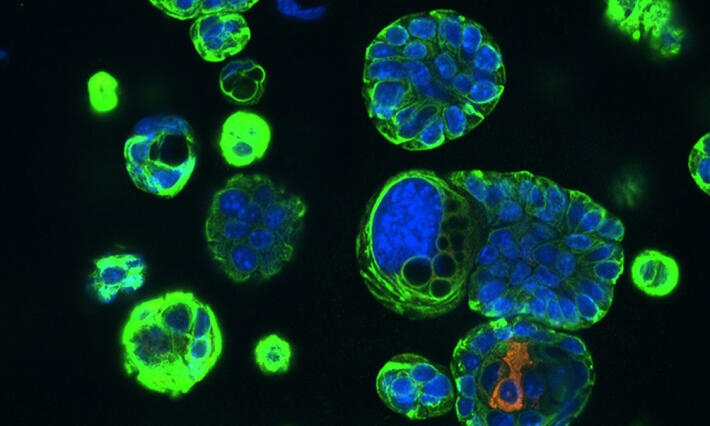
Life threw Chad Eddy “a curve ball" when simple back pain escalated into something much bigger. Now, in recovery, he's giving back.
He is all set to join the DCI LUNGe team on September 29 to help raise awareness about lung cancer — and he's the featured speaker.
Chad Eddy, a Raleigh resident from upstate New York was excited for his 40th birthday, March 20, 2019. His wife Missy had promised, “This year we’re going to go big.”
So, the couple, who didn’t travel very often, set off with their families for Orlando, Florida, to chill at the pool, enjoy some beach time, and take in a spring training Yankee game.
There was much to celebrate. Life, no less.
A year before, in the span of a month, Chad had gone from feeling perfectly normal, to experiencing numbness in his leg, increasing pain in his back, and limited mobility.
No abnormalities were found in an x-ray. Neither a cortisone shot nor physical therapy worked.
“Just being an athlete, I’d had injuries, but it wasn’t like I could walk it off, I knew that something needed to be fixed, bad,” recalled Chad. “It got to the point where I had to pull on my leg to move it. It was very scary.”
“He was basically the picture of health,” added his wife Missy. “Then suddenly, he could hardly walk. He was only 39.”
Finally, an MRI revealed a tumor — likely malignant — that had broken his vertebrae. The couple barely had time to process the news, when less than 24 hours later, Chad fell, immobilized by the pain of a severely compressed spinal cord that had weakened his legs. He was rushed by ambulance to Duke University Hospital.
That day, May 16, 2018, he underwent a four-hour spinal surgery that included the removal of a cancerous tumor and the insertion of eight screws and a rod in his spine and a cage in between the vertebral bones.
“The morning after surgery, I wanted to prove to Dr. Goodwin that I could walk so I did,” said Chad. “I took two little steps and he said, “Alright, now rest up some.” On the second or third day I was able to walk down the stairs and was cleared to check out of the hospital. Dr. Goodwin said that I was one of the most positive patients he’s ever had.”
“His ability to go from not walking to walking is a major predictor of his overall survival,” said Duke neurosurgeon Rory Goodwin, MD, PhD, who co-leads the Duke Center for Brain and Spine Metastasis and performed Chad’s spinal surgery.
However, with a diagnosis of stage 4, metastatic, non-small cell lung cancer — lung cancer that had spread to his spine — Chad needed treatment beyond surgery.
The couple was shocked that Chad had cancer at all and that it had advanced so quickly. And how did he get lung cancer? Chad wasn’t even a smoker.
According to Goodwin, the fact that Chad didn’t discover he had lung cancer until it had already spread to the spine, is not uncommon.
Neither is it uncommon for someone who doesn’t smoke to get lung cancer. While smoking is the leading cause of lung cancer, 18 to 20% percent of lung cancer patients, like Chad, have never smoked. Sixty percent, at the time of diagnosis, will have already quit.
Chad said he didn’t dwell too much on the cause. After a successful surgery and brief recovery, he just wanted to know the game plan.
Chad was referred to thoracic oncologist Jeffrey Clarke, MD, who advised genomic testing — a non-invasive “liquid biopsy” of the tumor DNA and tumor cells in his blood — to identify possible treatments. The test revealed that Chad’s cancer was caused by a particular mutation in the EGFR gene which was driving his cancer cells to grow.
Fortunately, a new drug had just been FDA-approved for patients with new diagnosis of lung cancer — osimertinib (brand name: Tagrisso) — that had been shown to bind to the EGFR protein and shut down cancer growth. First, Chad would first undergo 10 radiation sessions with Duke radiation oncologist Jordan Torok, MD.
He started taking osimertinib in June 2018, and toughed out the “hard work” of physical therapy to rebuild his strength. Chad was back at his customer service job part-time, then full-time, within a couple months of surgery.






